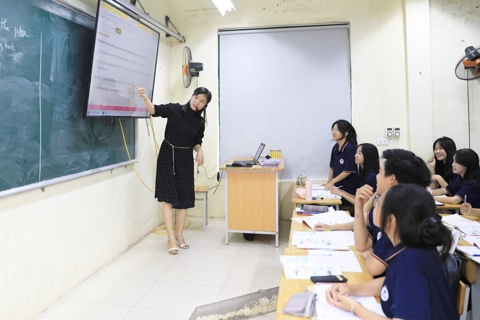Social Affairs
Endless Tet holiday debate: Economists propose no longer than a week
May 17, 2019 / 02:28 PM
Some wants the holiday less than a week while others want the holiday long enough for family reunification.
The Vietnamese Ministry of Labor, Invalids and Social Affairs (MOLISA) has been seeking public ideas for the time of Tet holiday or the Lunar New Year to make it suitable with the current economic situation.
Two options have been made with an aim to measure the public support and objection.
The first one (currently) is five days plus additional days if the holiday falls on weekdays. It means that the holiday may be more than a week.
The other choice is five days without additional days if the holiday falls on weekdays. It means that the vacation would be less than a week.
The ministry seeks public ideas after a number of people claimed that Tet holiday was too long, leaving impacts on normal business operations and therefore hurting the economy.
Supporting: Currently a large number of people support the long holiday which the government has maintained from 2013 in accordance with Law on Labor.
The majority of people support the long holiday, saying that the Lunar New Year is a chance for reunification and tightening relationships.
Nguyen Van Binh, deputy head of the MOLISA’s Legal Department, said that the New Year holiday in Vietnam is not long in comparison with other countries. In addition, it is a special vacation in which people enjoy family atmosphere and celebrate traditional cultural festivals.
Therefore, it should be long enough for those living and working far from home to return their places, VnExpress quoted Binh as saying.
Sharing ideas on the view of businesses, Truong Van Cam, general secretary of the Vietnam Textile and Apparel Association (VITAS), proposed to keep the current choice for the sake of people who work far from home.
Do Thi Thuy Huong from the Vietnam Electronic Industries Association (VEIA) said changing the current rule is unnecessary as it is long enough for people who have to travel for days to reach home.
Dao Thi Thu Huyen from the Japan Business Association in Vietnam (JBAV) shared the same idea with Huong.
Opposing: Other people prefer the five-day holiday, saying that it should not be long to avoid impact on the economy.
Khuat Thu Hong, head of Vietnamese non-profit Institute for Social Development Studies (ISDS), said that both options have pros and cons.
The long holiday would enable people to have more time to enjoy but violence and waste would be together. Meanwhile, the second choice would help spur tourism.
Economist Ngo Tri Long said that a holiday of five or seven days is reasonable. A longer holiday may cause stagnation among people.
Sharing the same idea, economist Le Dang Doanh, former head of the Central Institute for Economic Management (CIEM), said the holiday should not exceed one week that is enough for returning home and causes no impact on businesses’ operations.
In the country of male chauvinism, a long New Year holiday would burden women, he added.
Nguyen Van Binh concluded that results from discussions and consulting from experts show that the majority of ideas supporting the first option – at least a week.
Some local experts said long holidays would promote domestic tourism with diversified inbound tours. Whereas, some others said Tet holiday is normally costly and wasteful. A report by Nielsen Holdings N.V. showed that Vietnamese people spent average US$643/household on Tet holiday.

Tet, for many Vietnamese, is normally for family reunification
|
The first one (currently) is five days plus additional days if the holiday falls on weekdays. It means that the holiday may be more than a week.
The other choice is five days without additional days if the holiday falls on weekdays. It means that the vacation would be less than a week.
The ministry seeks public ideas after a number of people claimed that Tet holiday was too long, leaving impacts on normal business operations and therefore hurting the economy.

Tet is for enjoying and celebrating cultural activities
|
The majority of people support the long holiday, saying that the Lunar New Year is a chance for reunification and tightening relationships.
Nguyen Van Binh, deputy head of the MOLISA’s Legal Department, said that the New Year holiday in Vietnam is not long in comparison with other countries. In addition, it is a special vacation in which people enjoy family atmosphere and celebrate traditional cultural festivals.
Therefore, it should be long enough for those living and working far from home to return their places, VnExpress quoted Binh as saying.
Sharing ideas on the view of businesses, Truong Van Cam, general secretary of the Vietnam Textile and Apparel Association (VITAS), proposed to keep the current choice for the sake of people who work far from home.
Do Thi Thuy Huong from the Vietnam Electronic Industries Association (VEIA) said changing the current rule is unnecessary as it is long enough for people who have to travel for days to reach home.
Dao Thi Thu Huyen from the Japan Business Association in Vietnam (JBAV) shared the same idea with Huong.
Opposing: Other people prefer the five-day holiday, saying that it should not be long to avoid impact on the economy.
Khuat Thu Hong, head of Vietnamese non-profit Institute for Social Development Studies (ISDS), said that both options have pros and cons.
The long holiday would enable people to have more time to enjoy but violence and waste would be together. Meanwhile, the second choice would help spur tourism.
Economist Ngo Tri Long said that a holiday of five or seven days is reasonable. A longer holiday may cause stagnation among people.
Sharing the same idea, economist Le Dang Doanh, former head of the Central Institute for Economic Management (CIEM), said the holiday should not exceed one week that is enough for returning home and causes no impact on businesses’ operations.
In the country of male chauvinism, a long New Year holiday would burden women, he added.
Nguyen Van Binh concluded that results from discussions and consulting from experts show that the majority of ideas supporting the first option – at least a week.
Some local experts said long holidays would promote domestic tourism with diversified inbound tours. Whereas, some others said Tet holiday is normally costly and wasteful. A report by Nielsen Holdings N.V. showed that Vietnamese people spent average US$643/household on Tet holiday.








